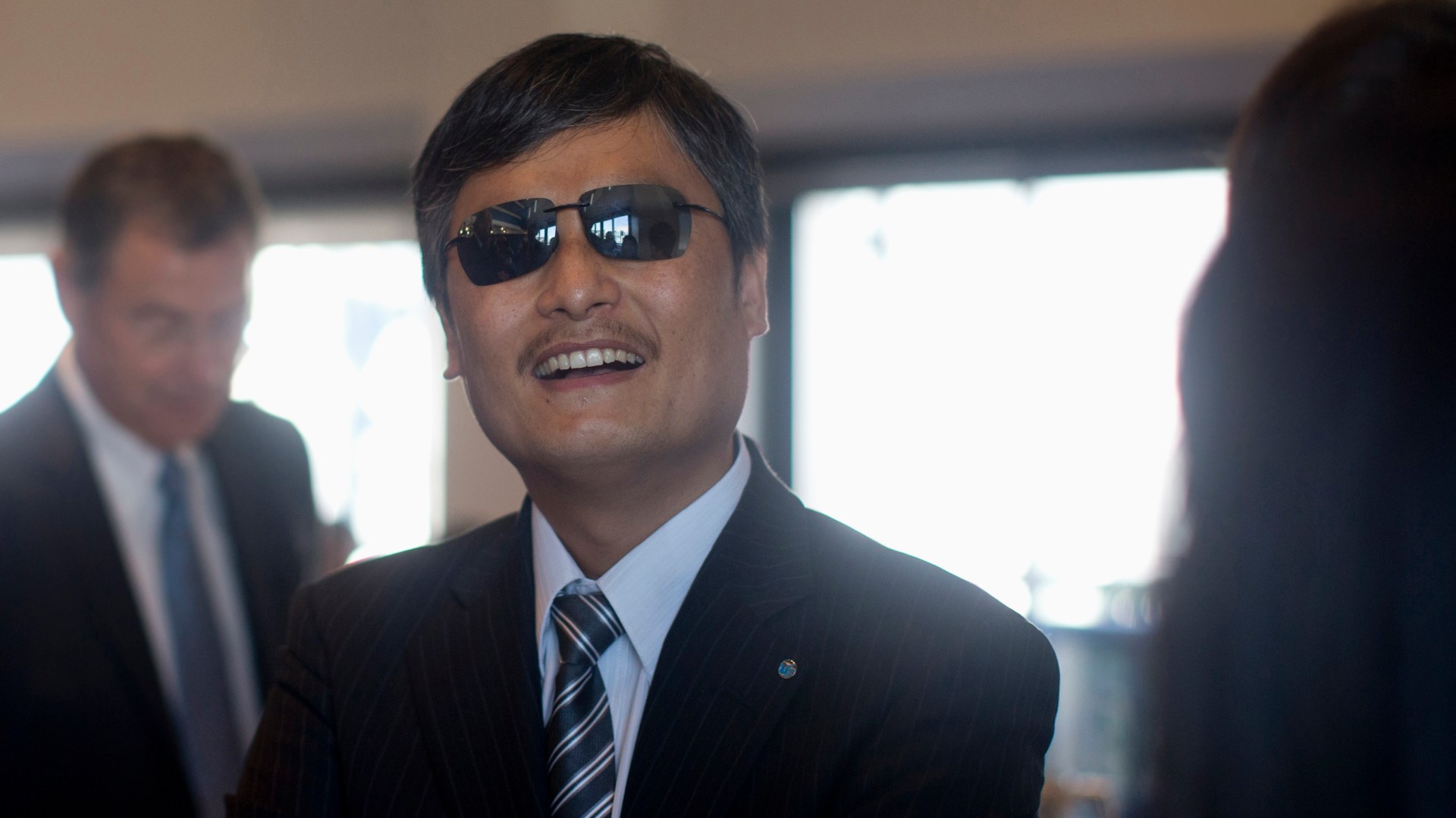Chen Guangcheng seemed an unlikely hero. Born in 1971 to a poor family in rural China, blind since infancy, and illiterate until his late teens, Chen became his country’s most prominent human-rights activist. His story made international headlines in 2012 when, under house arrest, he made a dramatic escape and sought refuge in the US embassy in Beijing. The Chinese government eventually allowed him to go to the United States.
The Barefoot Lawyer: A Blind Man’s Fight for Justice and Freedom in China (Henry Holt) is Chen’s autobiography. It offers both an absorbing story of how a determined, courageous individual can make a difference in the lives of millions and an eye-opening portrait of the desperate conditions endured by China’s rural poor. Chen advised his countrymen about their legal rights, and the book’s title refers to the nickname by which they know him.
Chen’s activism began with a seemingly trivial incident: A ticket collector on a bus refused to let him ride free, as mandated under China’s law regarding those with disabilities. His outrage at this mistreatment propelled him into advocacy for people with disabilities, first at his school in Shandong Province and then on a national level. He educated himself on disability law, petitioned the government in Beijing for better enforcement, and used the media to call attention to violations.
He employed similar tactics to help other victims of official misconduct. When people began to sicken or die from drinking water polluted by a paper mill upriver from his village, he exposed the corrupt officials whom the mill owners had bribed to ignore environmental regulations.
Chen also turned his attention to the plight of women forced to undergo abortions or sterilizations under China’s one-child policy. These are “unspeakable evils,” he writes. Listening to the horrific stories of couples who sought his help, “I felt their wounds in my own soul.” By then he had developed contacts in the foreign press, which gave Chen’s evidence worldwide coverage.
This work was not without personal cost, and The Barefoot Lawyer provides a chilling look at the unfettered power of the Communist state. In an effort to persuade him to give up his work, public security officials kept Chen under surveillance, beat him numerous times, and threatened to make his university withhold his diploma. They eventually arrested him on trumped-up charges and sent him to prison for four years. Two years of house arrest followed, during which he was separated from much of his family and denied contact with the outside world. “My home would become my prison,” he said.
China often punishes its critics by abusing their relatives; Chen’s family was no exception. Over the years, his wife was assaulted, his daughter was forbidden to go to school, and a nephew was jailed. Some family members and close friends advised him to give up his work. “I felt misery about the pain my family had suffered,” he writes. “[But] I firmly believed—as I still do—that if you bow your head before the Communist Party, it will soon make you get on your hands and knees, and next it will stomp on your crouching body until it destroys you.”
Chen never says what motivated him to be the voice of the voiceless in China. He invokes “heaven” from time to time, and he remains faithful to Chinese traditions such as praying at the graves of ancestors. He makes no mention of God or religion. What his deeds make abundantly clear, though, is his belief in the sanctity of life and his great compassion for the sick, those with disabilities, and the unborn. The Barefoot Lawyer is an inspirational, troubling read.
Melanie Kirkpatrick, former deputy editor of The Wall Street Journal’s editorial page, is a senior fellow at the Hudson Institute and author of Escape from North Korea: The Untold Story of Asia’s Underground Railroad (Encounter Books).











